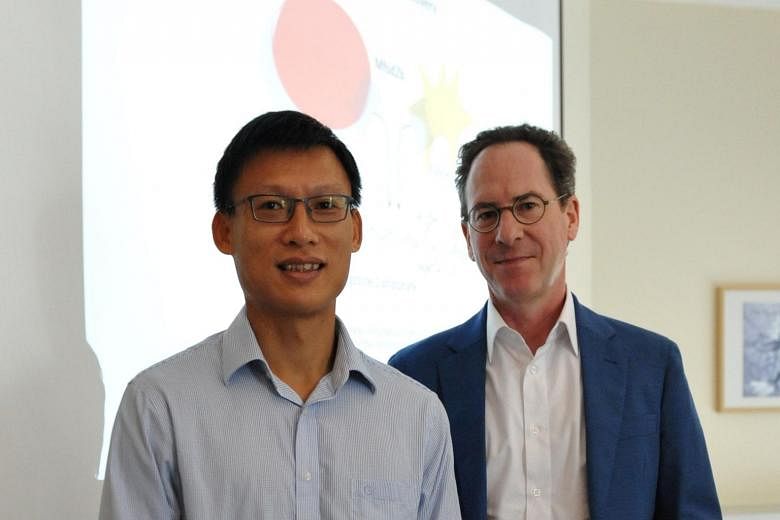SINGAPORE - Researchers at the National University of Singapore (NUS) have made a discovery that could alter the treatment of conditions such as multiple sclerosis and stroke, as well as some side effects of chemotherapy and radiotherapy, to name a few.
They have found a protein that plays a role in controlling the level of immunity cells in the body. This opens up new treatment possibilities, they say.
If too many immunity cells are produced, a surplus can result in them attacking other cells in the body. This is what happens in autoimmune diseases, for example, multiple sclerosis.
Scientists have known for a while that a compound in the body, sphingosine-1-phosphate (S1P) - a lipid produced by red blood cells and platelets - directs the movement of cells that support the body's immunity and protect blood vessels.
The ability to lower the level of S1P would result in fewer immunity cells, such as T and B cells, being produced, so there is no harmful excess.
There are drugs available that do this, for example, Fingolimod, which blocks the S1P signalling pathway, but they have side effects, including a reduced heartbeat.
The NUS scientists have found that S1P is transported through the body by a protein called Mfsd2b. Their findings were published in the prestigious Nature journal in October.
Professor Markus Wenk, head of the Department of Biochemistry at the NUS Yong Loo Lin School of Medicine, said: "We have now identified a new target for treating such diseases."
This breakthrough by NUS researchers will shed light on new ways researchers can control S1P in the body.
Altering the levels of S1P transported throughout the body could also enhance the treatment of inflammatory and vascular disease, such as stroke, as S1P is essential to the protection of blood vessels.
By increasing Mfsd2b, people with lower levels of S1P could have more of it sent through the blood, protecting blood vessels.
This will also be helpful for patients going through chemotherapy and radiotherapy who often suffer a low blood count because of the treatment.
The three-year research, which ended in April, was guided primarily by Assistant Professor Nguyen Nam Long, of the Department of Biochemistry at NUS Yong Loo Lin School of Medicine.
Though still in its early days, the research holds promise for the treatment of various diseases. The researchers are now exploring how this discovery can be translated to clinical use.
"I hope that we can use this discovery to develop drugs that will treat inflammatory diseases and therapeutics for the treatment of cardiovascular diseases and cancer patients," Dr Long told The Straits Times during a media briefing on Monday (Nov 13).

